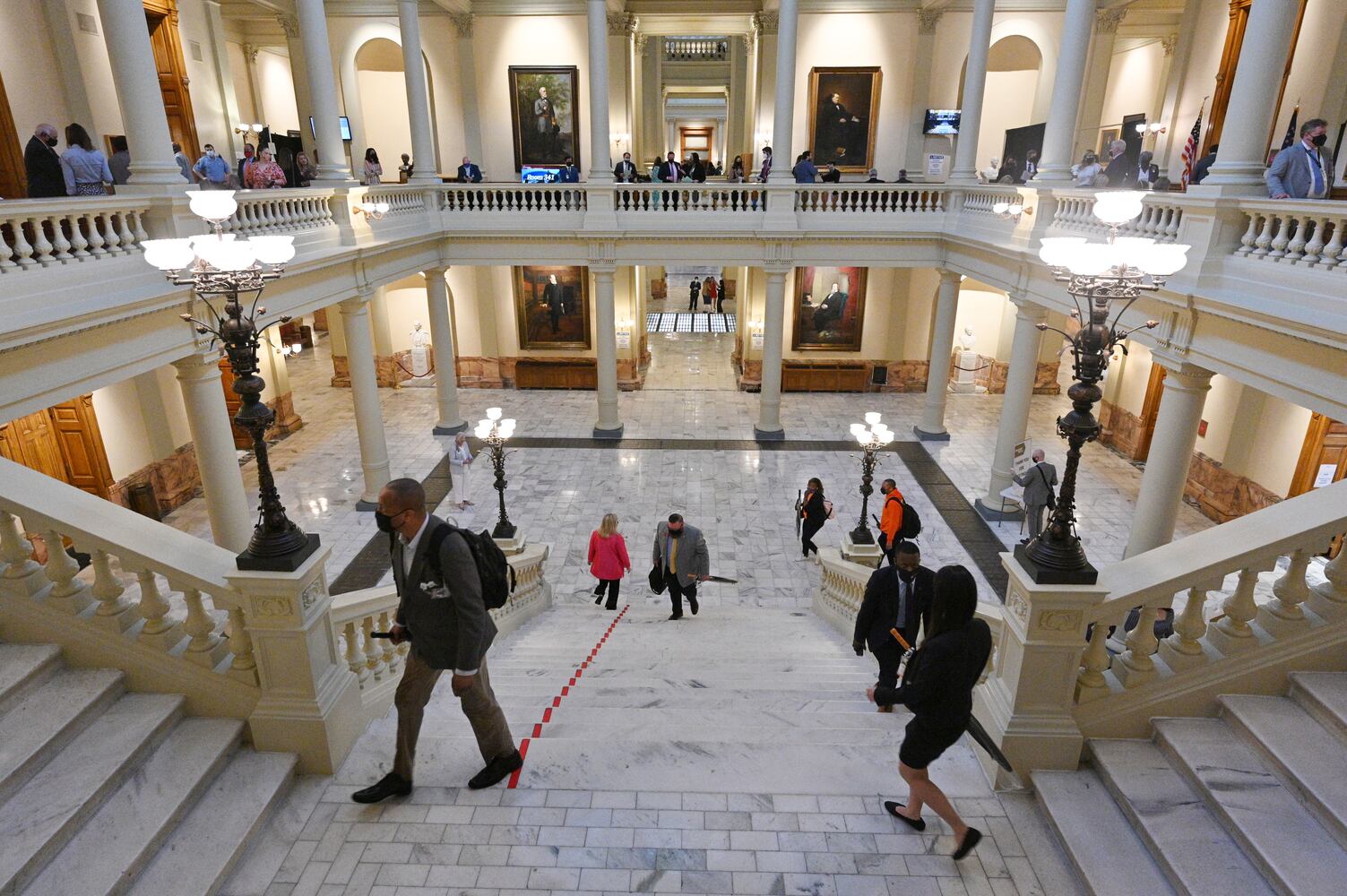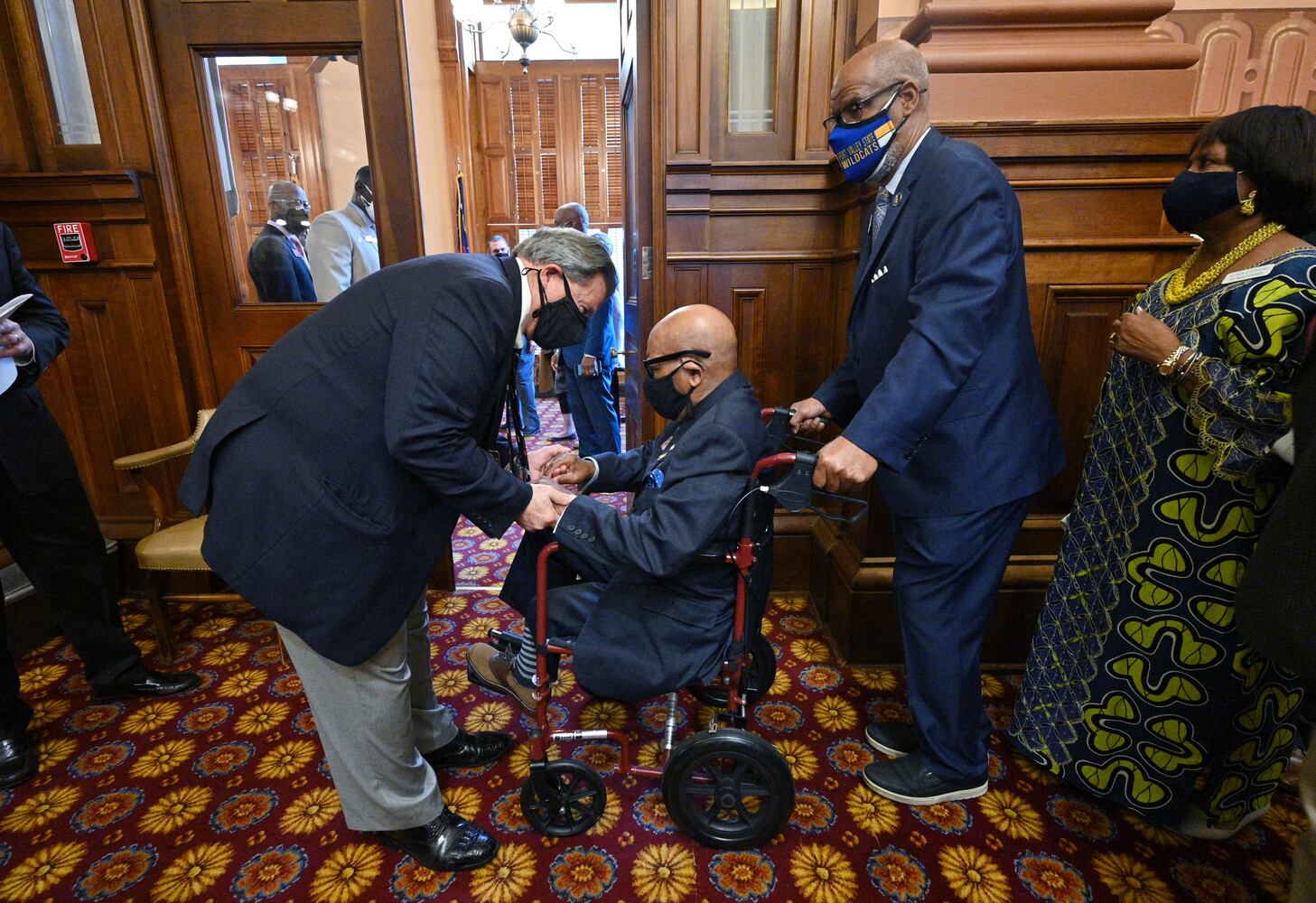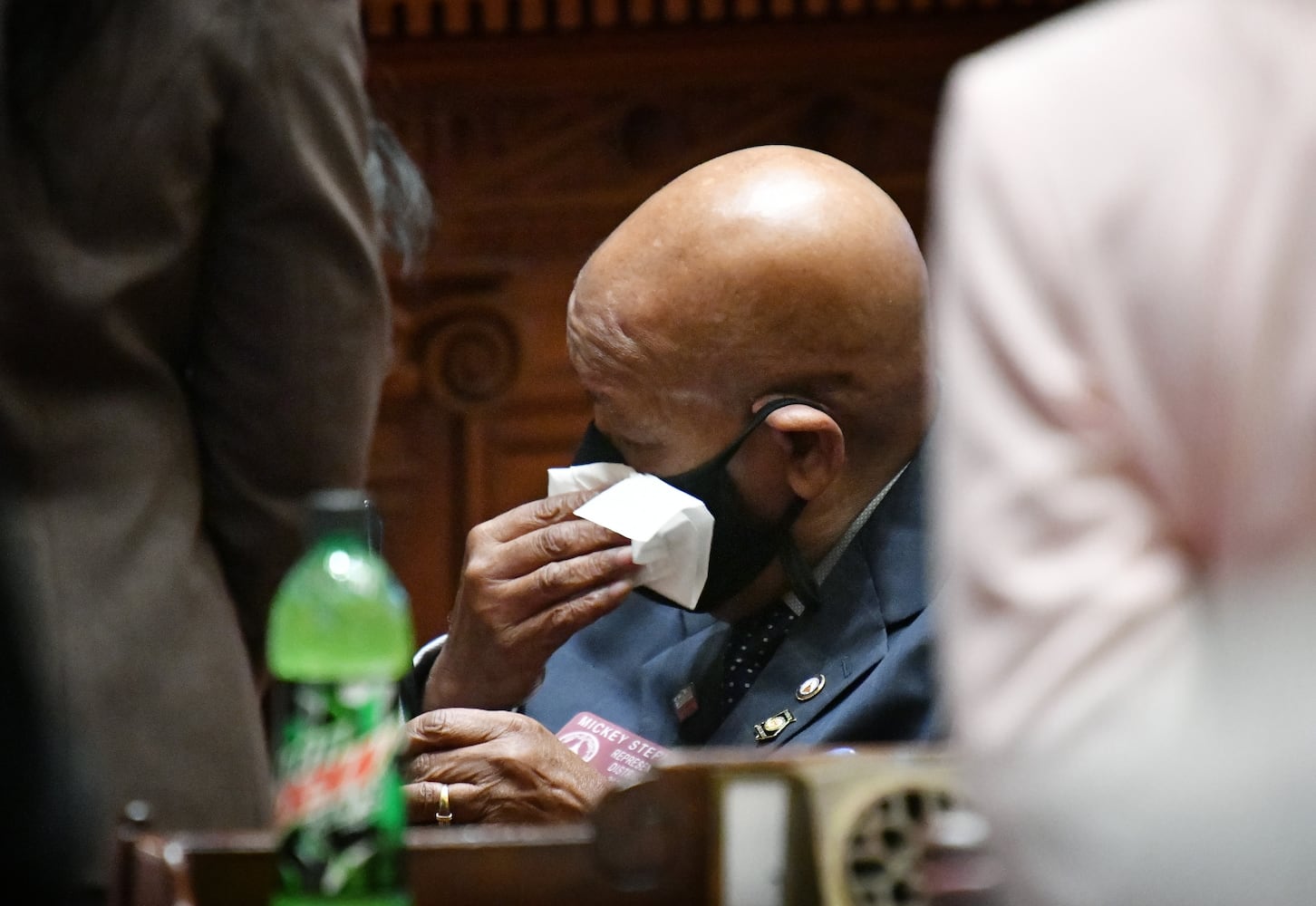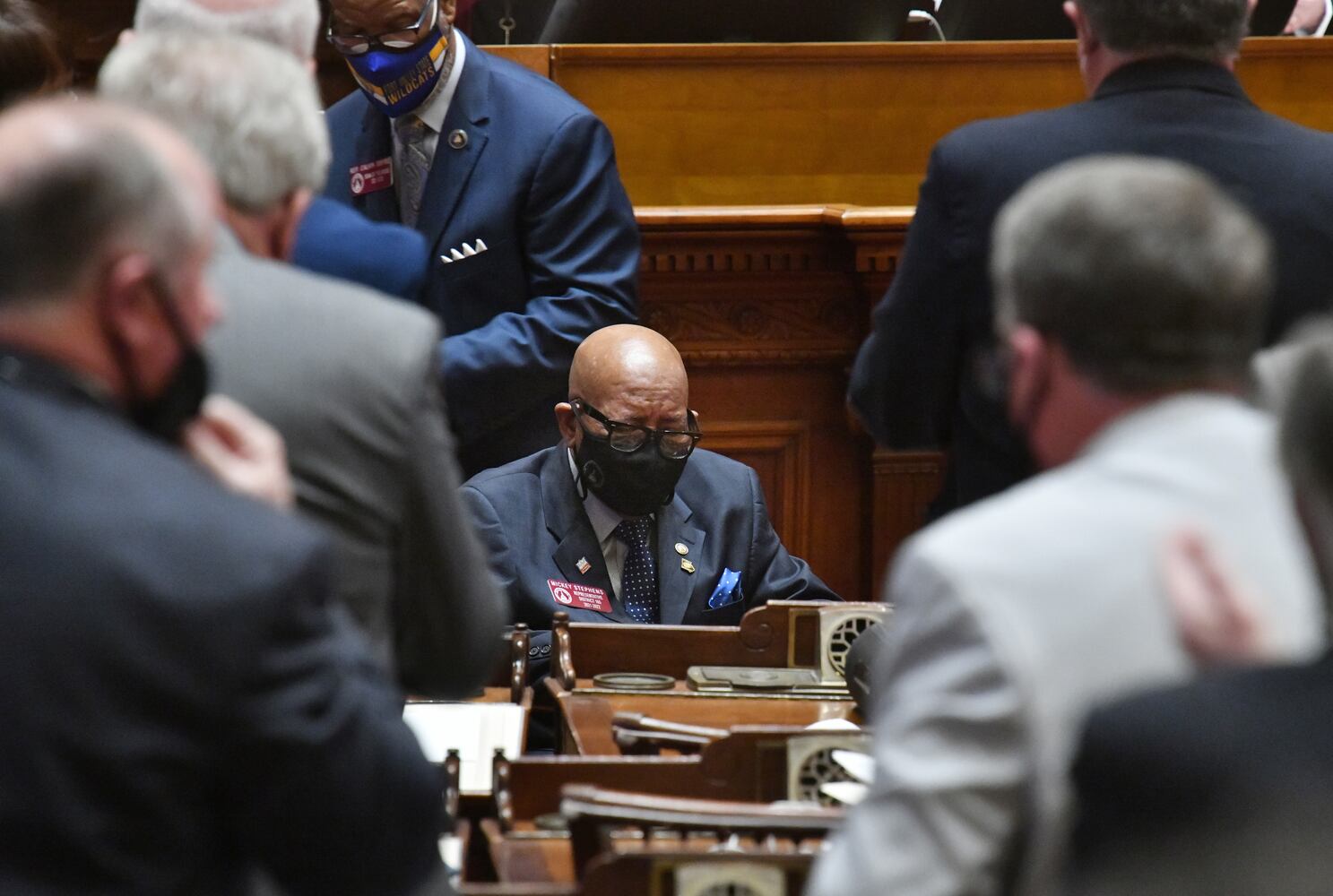The final rush to pass bills at the Georgia Capitol culminated Wednesday with the rollback of a citizen’s arrest law, restrictions on defunding the police and approval of a $27.2 billion state budget.
Lawmakers signed off on dozens of bills on the last day of this year’s legislative session, a daylong flurry of votes that sent measures to Gov. Brian Kemp.
A bill to review special-interest tax breaks — and add more tax breaks — passed late Wednesday, while a measure to give the state ethics commission more tools to investigate politicians failed in the final hours.
Changing Georgia’s citizen’s arrest law fulfilled a priority for leaders at the Capitol after it was cited by a prosecutor to justify initially not charging three white men involved in the shooting death of Ahmaud Arbery, a Black man. The men were later charged. They have said they are not guilty and are awaiting trial.
The Civil War-era law has allowed most residents to arrest someone they suspect of committing a crime. Kemp is expected to sign the bill into law.
“Our overhaul of the Georgia’s citizen’s arrest statute strikes a critical balance by allowing Georgians to protect themselves and their families, while also repealing Civil War-era language in our laws that is ripe for abuse,” Kemp said. “The Peach State will not tolerate sinister acts of vigilantism in our communities.”
The citizen’s arrest law has its roots in slavery, passed in 1863 to allow white Georgians to capture enslaved people who were fleeing to fight in the Union Army. The law was later used through the early 1900s to justify the lynching of Black people without repercussions.
In a sign of bipartisan force, the measure passed the House on Wednesday on a vote of 169-0.
The bill still would allow, under some circumstances, the detention of someone believed to have committed a crime. Employees at businesses, those conducting business on someone else’s property, security officers, private investigators and inspectors at truck scales would be able to detain people.
All 50 states have a version of a citizen’s arrest law in place. Lawmakers in South Carolina and New York have introduced measures similar to the Georgia overhaul.
The Georgia House and Senate agreed to a $27.2 billion budget for the coming fiscal year that includes extra money for schools, health care and road building, along with about $1 billion worth of other construction projects.
The chambers approved the budget for fiscal 2022 — which begins July 1 — before they ended the legislative session late Wednesday. Under state law, legislators had to approve a budget before the end of the session.
“I think we’ve got an incredible budget in front of us that addresses a lot of issues for a lot of folks,” said House Appropriations Chairman Terry England, R-Auburn.
Senate Appropriations Chairman Blake Tillery, R-Vidalia, told his colleagues, “I hope this is a budget you can all be proud of.”
The measure broadly follows Kemp’s budget proposal by backfilling spending cuts that lawmakers made in 2020 due to the pandemic.
The General Assembly in June cut the budget by 10% because it feared tax collections would plummet. That didn’t happen: Tax collections have improved with Georgia’s economy. The state is also receiving $4.7 billion from the latest federal COVID-19 relief plan, although how that money will be spent will be up to Kemp.
Lawmakers agreed to backfill 60% of the education spending reductions that lawmakers approved last year.
The plan also includes more money for nursing homes hit hard by COVID-19 and medical providers. Millions of extra dollars would be allocated for various mental health programs, some of which have been overwhelmed by the impact the pandemic has had on mental health and addiction problems.
The General Assembly also backed a bill that would prevent local governments from substantially cutting police budgets, a preemptive measure to stop attempts by criminal justice advocates to reallocate money to fund services such as mental health treatment or education.
Under the legislation, House Bill 286, cities and counties would be barred from reducing their law enforcement budgets by more than 5% in one year or cumulatively across five years. The House approved the measure 100-73, and the legislation now heads to Kemp’s desk for his consideration.
“It’s absolutely critical we get this legislation done and we continue to protect families in this state,” said state Rep. Houston Gaines, an Athens Republican who sponsored the bill.
Local elected officials in Atlanta and Athens-Clarke County considered drastically cutting their police budgets last year but ultimately did not.
Democrats opposed the measure, saying it goes against a principle often cited by Republicans that local governments should be able to control their own spending and priorities.
A bill to expand gambling in Georgia by allowing sports betting didn’t pass. Democrats in the House refused to support the measure and there wasn’t enough Republican backing to revive it.
Senate Resolution 135 would have asked Georgia voters whether the state’s constitution should be amended to allow online sports wagering. Passage in the Legislature would have placed the measure on the 2022 ballot for voters to make the final decision.
Lawmakers backed Senate Bill 6, which started as a proposal to study special-interest tax breaks. But it turned into the annual “Christmas Tree” tax bill, calling for several tax breaks, including those for medical device and pharmaceutical manufacturers, Lockheed Martin, owners of mega-yachts and several others.
Late in the evening, lawmakers also approved House Bill 617, which would begin to allow students to earn money while prohibiting schools from canceling their scholarships for doing so. The legislation, however, wouldn’t take effect until either the NCAA changes its rules or Congress passes a bill to allow student compensation.
Keep Reading
The Latest
Featured
















